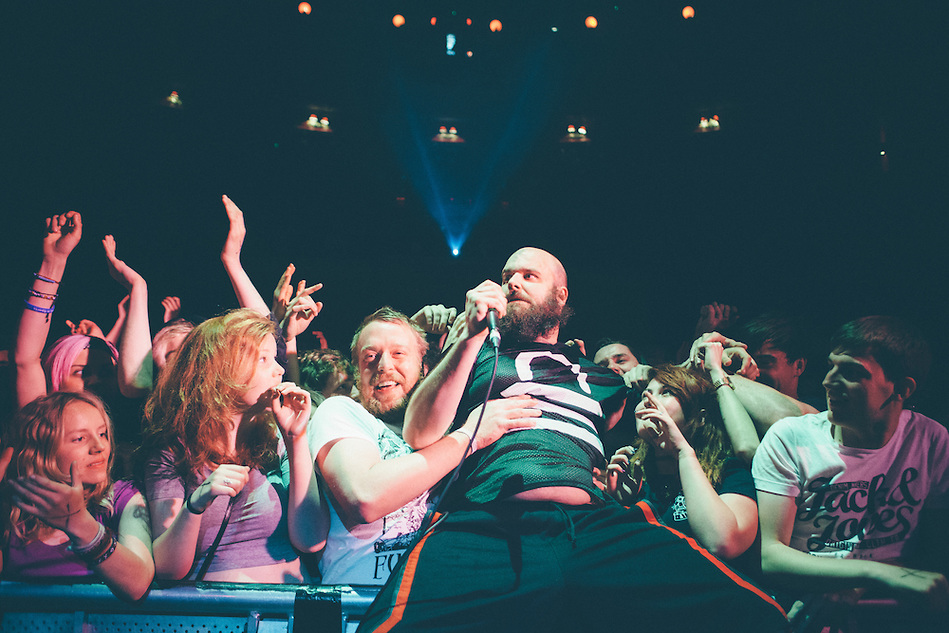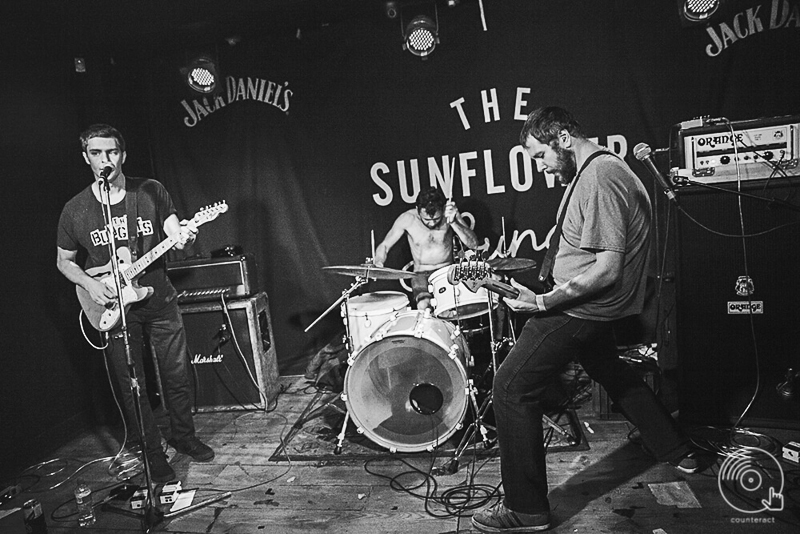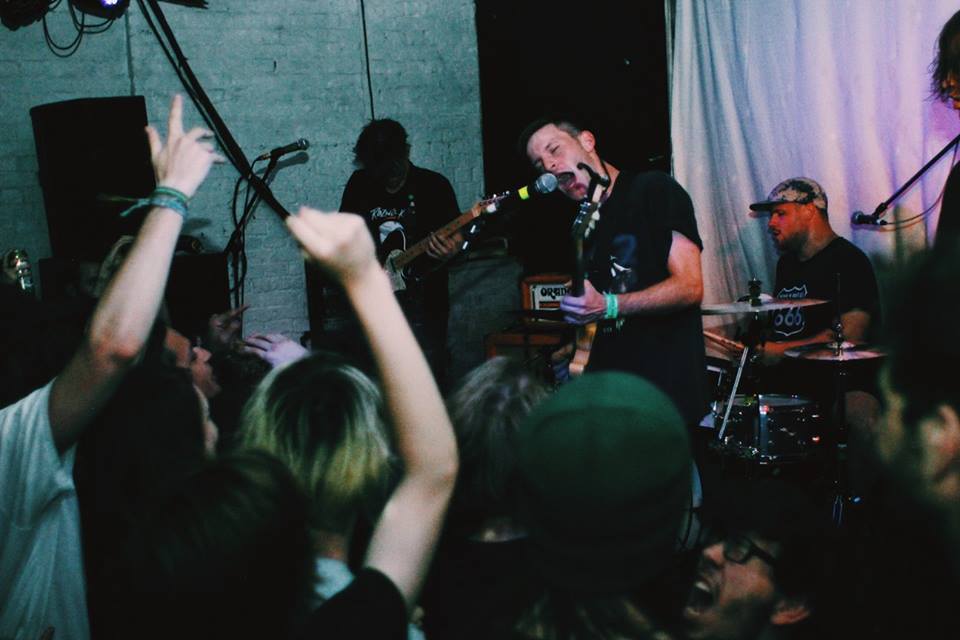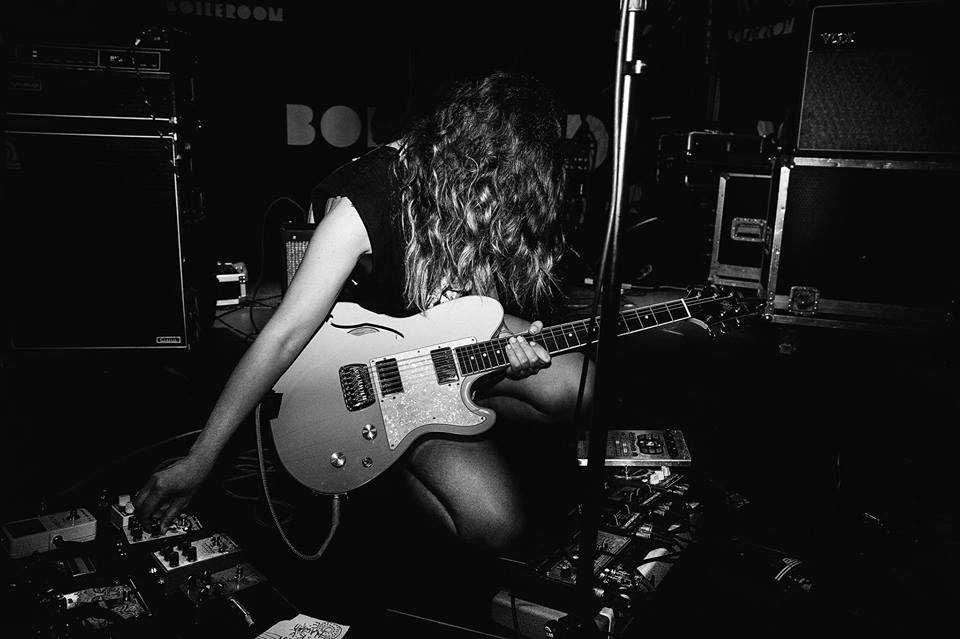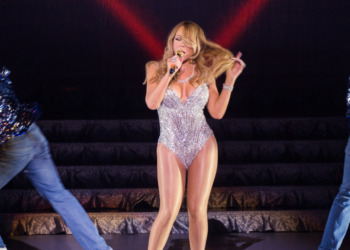Music venues have always been the foundation and bedrock for new bands and artists cutting their teeth and we are in a time where music-making itself is easier and cheaper – if going down the D.I.Y. route – yet chances to perform are steadily becoming fewer. If we lose this, we risk seeing our music scene shrinking and changing for the worse. Closing small venues not only denies people the chance to discover great new musicians, it also takes jobs away and minimises local businesses. Simply put: music cannot inspire and compel future generations if we continue to lose our small clubs and venues.
Closing small venues not only denies people the chance to discover great new musicians, it also takes jobs away and minimises local businesses.
Many of our most famous and popular artists began their careers on the local circuit (or ‘toilet circuit’ as it is called in the industry). From Oasis and Coldplay to modern artists such as Wolf Alice and Hooton Tennis Club – small venues were the way they came to prominence. The recent case of fabric nightclub – whose license was revoked on 6th September – has shown just how capricious and unstable the health of our small venues is. Fabric was noted as one of London’s, if not the country’s, premiere nightclubs and hotspots for music fans – a place people could hear cutting edge sounds and enjoy a great night out. Following two drug-related deaths (in the space of a few months) the club was temporarily closed. Following deliberation and dialogue between Islington Council and the licensees, fabric was closed for good.
An article in The Guardian said that Islington Council were dissatisfied with the fabric’s lack of awareness and stringency after the two drug-related deaths. Unable to come up to standard and implement appropriate safety measures led to its permanent closure. Incident-free prior to that, the council’s decision has saddened and shocked the music world. As one of the most notable and popular music venues in London, it proves just how volatile these spaces are, especially when it comes to the safety of the public.
 IN THE PHOTO : fabric venue. PHOTO CREDIT: Nick Ensing @nickensingphoto
IN THE PHOTO : fabric venue. PHOTO CREDIT: Nick Ensing @nickensingphoto
WHY WE NEED SMALL MUSIC VENUES
Back in 2012, NME conducted an interview with musicians like Carl Barât (The Libertines) and Graham Coxon (Blur) and asked them why we need small venues:
As Two Door Cinema Club’s Alex Trimble stated in the video, small venues were essential in helping the band get experience and transcend to the mainstream. Steve Lamacq spoke to the BBC during Independent Venues Week in January and replied to the question: Are small venues under threat? Research suggests that 35 percent of London’s clubs have closed since 2007 – not indicative of the nation but a worrying trend. So why are these venues so important for music? As Lamacq stated himself in the interview: “[small venues] bring communities together… musical communities together”; providing a stage for “young bands who need to hone their craft” – you cannot argue with his sentiments. New East London club The Bridge shows not all of London’s musical nightlife is under threat but it is worrying seeing what is happening. It is impossible for a music scene to survive and grow if these venues disappear.
Related article: “SOUNDFLY: A NEW DIRECTION IN MUSIC EDUCATION“
As a recent article in The Independent has emphasised: “Small venues are the lifeblood of the British music scene. Currently valued at £3.5 billion, the music industry in the UK really is based on the small gig venue circuit. Without these venues, new acts have no platform to perfect their craft, to build up fan bases, and to eventually fill the same shoes of some of the biggest names around today. The live music industry is thriving overall at the moment – but it just isn’t sustainable”. That word ‘thriving’ can be misleading. It implies long-term success and sustainability but that, as the article states, is a contradiction. Just because there are a lot of venues and bands willing to play does not mean the small venue economy is going to stay solvent and level – there is a north-south split that suggests clubs in the capital are far less stable than their northern counterparts. Perhaps the smoking ban has caused some issues with regards to the popularity of pubs and clubs but that is only one theory. Rent prices, the high cost of living and a preference to staying in means many venues, which were once packed and reputable, are now closing their doors for good.
Not only do these venues bond communities and go into the local economy but they ensure musicians have a place to play their songs and get their music heard.
Groups like Oasis and Coldplay did not lay down a demo and then get offered 100-date tours and million-pound deals. The majority of bands have to start at a grassroots level and go through the local bar and club scene. Not only do these venues bond communities and go into the local economy but they ensure musicians have a place to play their songs and get their music heard. What will be the future of music if we deny musicians the basic and fundamental right to perform and be heard?
 IN THE PHOTO: Meat Wave at The Sunflower Lounge, Birmingham. PHOTO CREDIT: Paul Reynolds
IN THE PHOTO: Meat Wave at The Sunflower Lounge, Birmingham. PHOTO CREDIT: Paul Reynolds
TODAY’S SMALL VENUES
Leeds is an example of where music venues are on the up and continuing to provide space for fresh musicians. If you visit the Yorkshire city then The Library is a space that is well worth a visit. Located near Hyde Park and near the main Leeds University campus, it is a popular hang-out for students and a space that welcomes a variety of ages and tastes. Nation of Shopkeepers has not only a cool name but adapts to day and night; during the day you can sit and listen to Synth.-Pop on old leather sofas, at night it transforms into a popular dance club that attracts people from all around the county. Manchester also has plenty of great and characterful venues worth seeking out. Night and Day Cafe provides local showcases in addition to giving a platform to terrific young D.J.s – all set in a convivial and hospitable atmosphere in Oldham Street. Gullivers is part of the vibrant Northern Quarter in Manchester and is free from pretensions – offering fantastic food, entertainment and music for proper music fans. Nottingham’s The Bodega Social Club is also a fantastic and interesting venue that has seen Sunflower Bean and The Spitfires play recently, not to mention Nottingham’s thriving and multifarious venue, Rescue Rooms.
As highlighted, the North and the Midlands have numerous charming and popular venues that are providing interesting space for musicians and bands to perform. These spots are vital for our new musicians and it is paramount we support and encourage them. It is hard to say why areas like the North of England and the Midlands are thriving but it may have something to do with population and numbers. London is becoming busier and more crowded so, as such, there is going to be an inevitable happening: not all clubs and venues will survive and be able to remain in business. There is some truth there, but it goes deeper than that.
Large venues and arenas have become a lot more profitable over the last 10 years. Advertising, high ticket prices and exposure ensure they continue to grow and remain profitable. However, what large venues lack is the intimacy of small venues; a way for the public or local community to support fresh talent and experience something new.
One of the things modern music venues must contend with is the changing dynamic of the music industry. Certain cities and towns have their set sound and culture but the nature of music-making is changing more frequently than ever. D.J.s, electronic and soundscape artists especially require more dynamic, live sets often using theatrics and visuals. Many venues, at the moment, are not equipped to fulfil these specifications and unable to adapt to the modernisation and alternatives in music. The only way venues, in tandem with music itself, can remain buoyant and popular is perhaps to become more adaptable. The more modern and varied music venues become, the greater the array of artists that will require them. One of the reasons clubs away from London are still in business is due to the community ethos and the way venues allow artists the space to develop and grow. London is compacted and expensive so adding extensions to venues is not feasible or physically possible.
For more articles on creativity and innovation, visit #FateofSmallMusicVenues
 IN THE PHOTO: PUP during 234 Fest at Brighton’s Green Door Store. PHOTO CREDIT: Thomas Brooker
IN THE PHOTO: PUP during 234 Fest at Brighton’s Green Door Store. PHOTO CREDIT: Thomas Brooker
A BROADER SCOPE
Modern music venues often go beyond music itself and are not simply a place for new acts to perform. Perhaps reacting to the interests and demands of their communities, many of our best venues engage in charity and cast their nets wide. We often assume a club or small venue is just concerned with music and does not go beyond their field of interest but many venues are proving that’s not the case. Boileroom is based in Surrey and, aside from being one of the most-popular small venues in the south, it also actively engages with the community. The venue hosts activism evenings and brings people to discuss issues like sexism, transgenderism and animal rights. The Surrey equivalent to the soup schemes in Detroit is providing a discussion space for three entrepreneurs/pitches offering the winner the pot from the night as well as support and/or funding for their idea. Music venues understand how vital it is to help their local communities and bring people together and not just a menas to help musicians perform and build careers.
 IN THE PHOTO: No Joy Ryan Henry June 2016 at Boileroom, Surrey. PHOTO CREDIT: Ryan Henry
IN THE PHOTO: No Joy Ryan Henry June 2016 at Boileroom, Surrey. PHOTO CREDIT: Ryan Henry
We often assume a club or small venue is just concerned with music and does not go beyond their field of interest.
So, perhaps these types of venues need to be given a second look and reevaluated in terms of their place within society. Government grants are an option for struggling small venues and applying for finance cannot only save a venue but can be spent on improvements and expansions. Government support is not an option many are exploring but something that needs to be made more aware. Bodies like Music Venues Trust have been set up to safeguard and preserve the iconic music venues of the country – the much-needed bastions of the ‘toilet circuit’.
 IN THE PHOTO: Big Deal shot at The Lexington, London. PHOTO CREDIT: 45 Magazine
IN THE PHOTO: Big Deal shot at The Lexington, London. PHOTO CREDIT: 45 Magazine
There is a lo-fi and scruffy glamour to these small venues and, as outlined, the important first steps for our future artists and strengthening communities. If we deny their existence then music, as we know it, is in danger. From London’s The Lexington to The Fleece in Bristol, there are such a wonderful array of music venues around the UK and they are all designed to help our up and coming bands and keep Britain’s music scene strong. Individual clubs like fabric are not the wider picture: the future of the U.K.’s small venues is not doomed; we must be vigilant and do what we can to stem the tide of closures.
VIDEO CREDIT: Thomas Brooker (www.tlbrooker.com)
Recomended Reading: “BRINGING MENTAL HEALTH INTO THE SPOTLIGHT: AN INTERVIEW WITH MUSICIAN RKZ“
_ _
EDITOR’S NOTE: THE OPINIONS EXPRESSED HERE BY IMPAKTER.COM COLUMNISTS ARE THEIR OWN, NOT THOSE OF IMPAKTER.COM.
Feature Photo Credit: Countessain/ Rachel Juarez-Carr
________________________________


